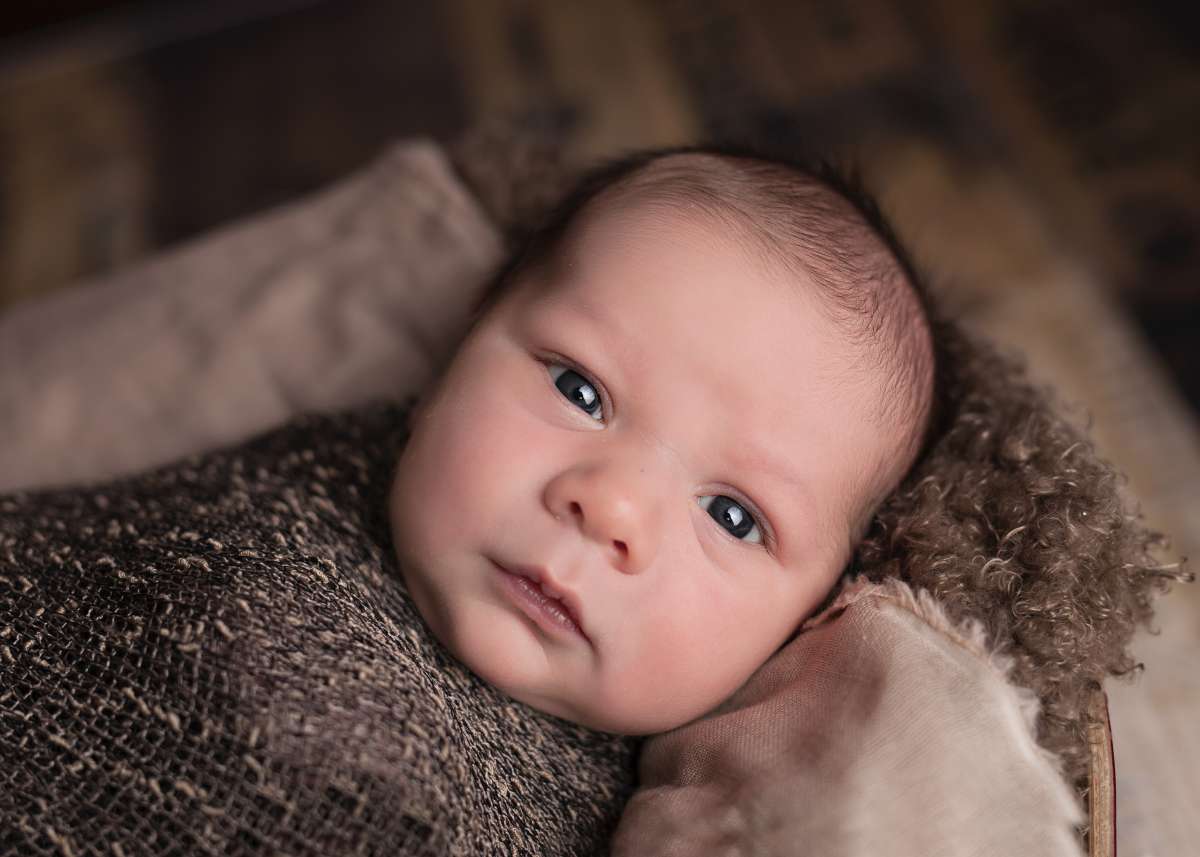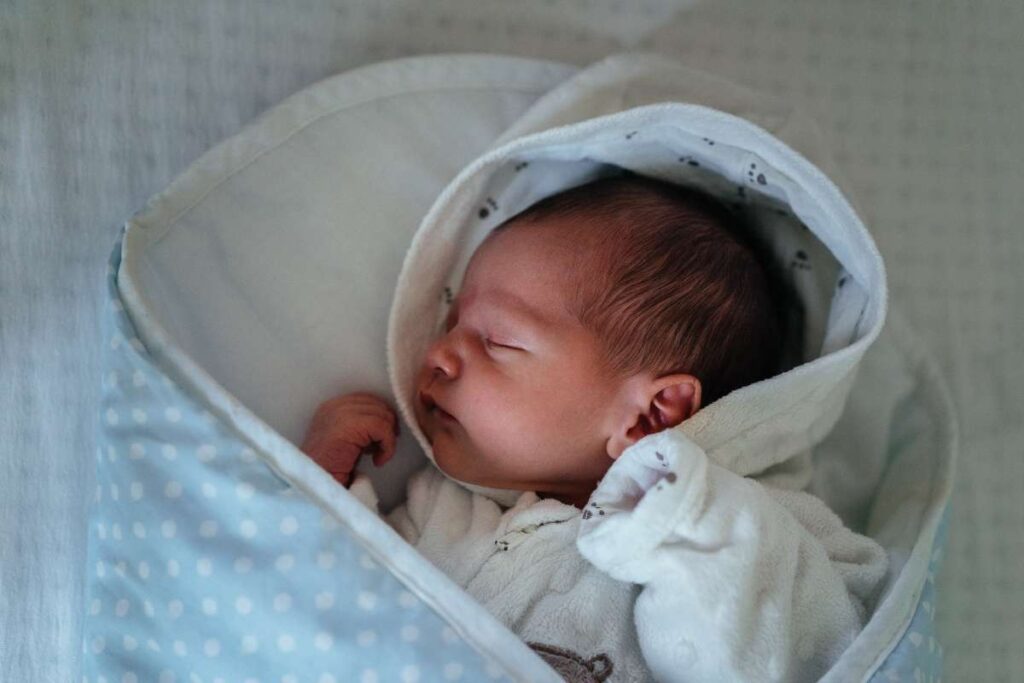Around the time your child turns 12 months old, you should stop giving him or her a bottle before bed. Whether or if your infant will eventually start drinking milk is still up in the air.
Between 6 and 9 months of age, you can begin weaning your baby off of the bottle at bedtime.
Babies can self-regulate their eating habits, so if you notice that your baby is frequently turning their head away from the last bottle of the day, it may be time to stop giving them that bottle.
However, you should see your baby's doctor before making any modifications to the feeding schedule if your infant was born prematurely or if he or she is experiencing any health issues, such as diarrhoea or failure to thrive.
If you continue this for too long, your baby may never learn to go to sleep without help. Your baby will become increasingly reliant on the bedtime bottle the longer you give it to them, and they may eventually need it to fall asleep at all.
Once your kid develops teeth, giving them a bottle of milk before bed can cause cavities. While your baby is napping, milk can collect in his or her mouth, giving the sugars in the milk a chance to erode the enamel on his or her teeth.
By the time your child is 12 months old, you should have entirely phased out the nightly bottle of milk. Though it may be difficult, know that your baby does not require the extra calories that milk provides.
By the time your kid is a year old, the meals and snacks you give them during the day should provide all the nourishment they require. You might also try offering your infant other things that provide them comfort, like a favourite blanket or stuffed animal, when it's time for bed.
FAQs About Baby Bed
When the baby wakes up in the morning, top off their night with a “dream feed”. A full night of sleep will require waking him sufficiently so that he’s not completely asleep, and he shouldn’t be fed while he’s sleeping. He might be able to sleep for an additional hour or two even when he’s too tired to eat.
“Ideally, the feeding [should not be] the last thing that happens right before sleep,” While every baby and every family is different if your baby currently wakes between four and six times a night, Dr Menkes advises against going cold-turkey on all the nighttime feeds.
Some sleep experts believe that waking up a baby from sweet sleep is good. So if the baby takes a long nap before bedtime, remember that it's okay to wake her up after an hour or so, especially when it's her last nap.
It's dangerous to feed a baby while lying down or deeply asleep as they could choke. After the dream feed, take a few minutes to keep your baby resting upright so that any air can escape and their milk can go down properly.
An ideal bedtime for a three-month-old baby is between 7:30 – 9:30 pm. This is based on the developing circadian rhythm (or body clock) of a three-month-old and also fits in with the 9 – 11 hours of nighttime sleep needed.
When Should I Stop Nighttime Breastfeeding?
You may want to think about a few of things.
How's your kid's development been going?
If you answered "no," your kid might benefit from the extra calories tonight. You should consult your child's paediatrician if you have any concerns about the child's growth.
Approximately how old is your kid at this point?
Infants who have been bottle-fed for at least a few months are usually ready to stop eating at night. Babies that are breastfed typically require up to a year to reach their full developmental potential. Breastfeeding is best for babies, according to the American Academy of Pediatrics, and should be continued for at least six months before introducing complementary foods, and then for as long as desired by both the mother and the baby. It's worth noting that night weaning can eventually lead to full weaning.
Want to keep working as a night nurse?
A lot of mums, especially those who have to go out into the world to make a living, find the bonding and extra time that comes with night nursing to be invaluable. If so, continue as usual so long as you're receiving adequate sleep. If you don't, you may have to decide between getting more rest and keeping up with your declining milk production.

How To Stop Bottle Feeding At Night
Your child is now over six months old, seems to be developing normally, and still needs to eat several times during the night. If your kid takes formula or consumes milk of any kind (breast, cow, goat, etc.), this should be easy. Among the two possible wears, we much favour the first.
Your baby is being weaned off formula by one ounce every night, and is currently receiving three 4-ounce bottles. On the first night, you use the last of the bottle and pour off one ounce.
You should take away 1 ounce from bottle 2 on night 2. Bottle #1 is used down to 1 oz. on night three. You should switch to a water bottle when the remaining volume in the bottle is less than 2 ounces. The bottle is thrown away after this process is complete. The idea is to let your child sleep through the feedings and not wake them up. It's fine to give them the regularly scheduled bottle if they miss a meal one night but wake up the next night for that feeding. A helpful hint from the experts is to put this plan on paper in advance. During the wee hours of the morning, you will have forgotten everything about it.
In order to save time changing wet diapers and cut down on pee production, try using only 2-ounce water bottles. Let them drink juice or milk instead if they don't like water. But resist the urge to give in and give in.
Every Other Approach: Some alternatives include limiting the amount of food in each bottle and extending the time between feedings. The first method is not preferable because it prolongs the times your youngster may be upset. The second option isn't appealing to me since (a) I don't have the time or energy to find out how to dilute the milk tonight and (b) milk Plus water = yuck.
In case you are sharing a bed with your kid, you should know that alternatives 2 and 3 are not easy. Therefore, you should probably remove the kid from your bed first. Here's my advice on how to gracefully phase out of bedsharing.
When And How Can You Begin Weaning Your Baby Off Of Nighttime Feedings?
You've been getting up to nurse your kid multiple times through the night for months. But now that she's bigger, she's maybe even weaning herself off those midnight munchies. Do you think it's time to begin night weaning?
During night weaning, you gradually stop feeding your infant in the middle of the night. She will nurse or take a bottle first thing in the morning after waking up, then numerous more times during the day (like before), and finally right before night.
After a while, when a baby's stomach can hold more food, it's natural for them to stop waking up for feedings during the night. Is it possible for infants to stop needing nighttime feedings on their own? Occasionally, if you're very, very lucky. More often than not, however, your little eater will need a gentle prod to get started.
If you and your baby could use some extra shut-eye, here's how to wean your baby off of the nighttime bottle.
How to Determine the Appropriate Time to Begin Night Weaning
Babies reach the developmental milestone of "sleeping through the night" (defined as a stretch of six to eight hours) between the ages of four and six months.
Most infants achieve the magic weight of 12 to 13 pounds around this time, at which point they no longer have a metabolic need for feedings throughout the night.
Stop giving your infant a bottle in the middle of the night when he or she reaches the appropriate age and weight.
Many parents start when they decide it's time to get some sleep again, but others wait for signs from their infant, such as fewer wakeups during the night or shorter feedings. Prior to beginning night weaning, it is recommended that you discuss the process with your child's paediatrician.
Also, between the ages of 4 and 6, you can take your time weaning. It's fine if you'd rather wait a bit longer or reduce the number of nighttime feedings to one or two. (It could be a good idea to raise the amount given at those feeds if your infant tends to wake up hungry again.)
However, by the time a baby reaches 5 or 6 months old, she is likely no longer hungry when she wakes up to nurse at night (unless she isn't eating enough during the day), and has just grown accustomed to the nighttime feedings and cuddles. As your child grows older, it may become more difficult to persuade her to (willingly) forgo these luxuries.
Weaning gradually vs. abruptly
The doctors believe that it's best to ease out of the nighttime feedings rather than abruptly discontinue them. Your baby has been up all night eating for the past few months, so she knows to wake up and wait for you to arrive with her next meal.
By weaning her off of that practise gradually, you can make the change easier on her, on you, and on the baby.
One frequent strategy for this is to add 15-30 minutes every other night to the time that passes between feedings at night. The longer your baby sleeps, the less likely she is to wake up during the night for food.
You can also try giving your baby less at each meal by reducing the amount of time spent nursing or by giving your baby a smaller bottle. Cut back a little bit each day, and after a week or so, your baby may decide that it's not worth getting up in the middle of the night to eat.
Breastfed babies can begin weaning at night.
There is a learning curve for both breastfed and bottle-fed infants when it comes to going through the night without eating. However, night weaning can be a challenge for your body and milk production if you're a nursing mother. You may help breastfeeding infants adjust to solid foods by following these guidelines.

Check to see that your darling is getting enough to eat every day.
The more food your little sweetie eats throughout the day, the less she will need to eat at night. Babies under six months old who are still exclusively breastfed and haven't started solids should be fed eight to twelve times a day, every two to three hours. (Five or six feedings a day are the usual after that.)
Moving gently is recommended.
The danger of mastitis and the discomfort of engorged breasts both rise when several nighttime feedings are abruptly cut off all at once. It can also reduce the amount of milk you produce.
Instead, cut back on nighttime feedings by a few minutes each night, or increase the duration between feedings, and focus on eliminating just one feeding at a time.
Relax with a soothing pump.
If you feel your breasts getting full before bedtime or in the middle of the night, pumping can help relieve some of the pressure.
Infants fed exclusively from bottles can be weaned at night.
Bottle-fed infants can also benefit from the slow and steady method of night weaning. The most important factor in this is making sure your child is well-nourished throughout the day, so that she won't be as hungry as she is at night and won't feel the need to snack.
By the time your baby is ready to begin night weaning, she is probably consuming between 24 and 32 ounces in a 24-hour period. Your child may drink a little less milk after she begins solids. She'll need less milk in the early hours if she drinks this much throughout the day.
Advice for weaning your infant at night
Whether you're breastfeeding or bottle-feeding, there are plenty of other methods that can help you wean your baby at night. Here are some strategies to consider:
Please feed the infant before bedtime.
One way to ensure your baby sleeps through the night is to give her one last meal just before you turn in.
You'll want to wake her up just enough so that she can function, but if she's still sleepy, a sip or two might do her good.
If, however, the dream feed rouses her and prevents her from falling back to sleep or trains her to wake up for feedings more frequently, you should forego it.
Don't barge in right away.
Babies of all ages wake up occasionally throughout the night, and a fleeting awakening is not always indicative of hunger. Don't rush in to feed her just now; she may just be fussing and needs some time to calm down.
Maintain coherence.
Because night weaning is an adjustment for your baby, she will learn about the new normal more quickly if you have a plan and adhere to it rather than offering a feeding some nights and not others. (Remember, though, that your baby may still need to nurse overnight when she is sick, even if she has dropped a feeding or is totally night weaned.)
Feed just when necessary and maintain little contact with the animal.
However, if you see that your baby isn't settling back to sleep and you know that she needs to eat, go ahead and give her a feeding. But do it like a pro: turn off the lights (or at least turn them down), don't engage in lengthy small talk, and only change her diaper if it's visibly soiled or drenched.
Night weaning can take some time, and every baby develops at their own speed. Your child will adapt to the new routine more quickly if you gradually reduce feedings and remain consistent, but if it seems as though she is struggling, you can always pause or lower the pace.
And remember to check in with your baby's paediatrician whenever you have any concerns or questions, or if you just want to go over your baby's development.
Your kid will stop needing to be fed at night, even if it takes a while, and you'll all be able to get some rest.
Conclusion
Between 6 and 9 months of age, you can begin weaning your baby off of the bottle at bedtime. Your baby will become increasingly reliant on the bedtime bottle the longer you give it to them. By 12 months, you should have entirely phased out the nightly bottle of milk. Babies who have been bottle-fed for a few months are usually ready to stop eating at night. Night-time nursing is best for babies, and should be continued for at least six months before introducing complementary foods.
You've been getting up to nurse your kid multiple times through the night for months. But now that she's bigger, she's maybe even weaning herself from bedsharing. Here's how to gracefully phase out of bedsharing with your baby at night.
Content Summary
- Around the time your child turns 12 months old, you should stop giving him or her a bottle before bed.
- Whether or if your infant will eventually start drinking milk is still up in the air.
- Between 6 and 9 months of age, you can begin weaning your baby off of the bottle at bedtime.
- Babies can self-regulate their eating habits, so if you notice that your baby is frequently turning their head away from the last bottle of the day, it may be time to stop giving them that bottle.
- However, you should see your baby's doctor before making any modifications to the feeding schedule if your infant was born prematurely or if he or she is experiencing any health issues, such as diarrhoea or failure to thrive.
- If you continue this for too long, your baby may never learn to go to sleep without help.
- Your baby will become increasingly reliant on the bedtime bottle the longer you give it to them, and they may eventually need it to fall asleep at all.
- Once your kid develops teeth, giving them a bottle of milk before bed can cause cavities.
- While your baby is napping, milk can collect in his or her mouth, giving the sugars in the milk a chance to erode the enamel on his or her teeth.
- By the time your child is 12 months old, you should have entirely phased out the nightly bottle of milk.
- Though it may be difficult, know that your baby does not require the extra calories that milk provides.
- By the time your kid is a year old, the meals and snacks you give them during the day should provide all the nourishment they require.
- You might also try offering your infant other things that provide them comfort, like a favourite blanket or stuffed animal, when it's time for bed.
- When Should I Stop Nighttime Breastfeeding?
- You may want to think about a few of things.
- How's your kid's development been going?
- If you answered "no," your kid might benefit from the extra calories tonight.
- You should consult your child's paediatrician if you have any concerns about the child's growth.
- Approximately how old is your kid at this point?
- Infants who have been bottle-fed for at least a few months are usually ready to stop eating at night.
- Babies that are breastfed typically require up to a year to reach their full developmental potential.
- Breastfeeding is best for babies, according to the American Academy of Pediatrics, and should be continued for at least six months before introducing complementary foods, and then for as long as desired by both the mother and the baby.
- It's worth noting that night weaning can eventually lead to full weaning.
- Want to keep working as a night nurse?
- A lot of mums, especially those who have to go out into the world to make a living, find the bonding and extra time that comes with night nursing to be invaluable.
- If so, continue as usual so long as you're receiving adequate sleep.
- If you don't, you may have to decide between getting more rest and keeping up with your declining milk production.
- How To Stop Bottle Feeding At Night Your child is now over six months old, seems to be developing normally, and still needs to eat several times during the night.
- If your kid takes formula or consumes milk of any kind (breast, cow, goat, etc.),
- this should be easy.
- Among the two possible wears, we much favour the first.
- Your baby is being weaned off formula by one ounce every night, and is currently receiving three 4-ounce bottles.
- On the first night, you use the last of the bottle and pour off one ounce.
- You should take away 1 ounce from bottle 2 on night 2.
- Bottle #1 is used down to 1 oz.
- on night three.
- You should switch to a water bottle when the remaining volume in the bottle is less than 2 ounces.
- The bottle is thrown away after this process is complete.
- The idea is to let your child sleep through the feedings and not wake them up.
- It's fine to give them the regularly scheduled bottle if they miss a meal one night but wake up the next night for that feeding.
- A helpful hint from the experts is to put this plan on paper in advance.
- During the wee hours of the morning, you will have forgotten everything about it.
- In order to save time changing wet diapers and cut down on pee production, try using only 2-ounce water bottles.
- Let them drink juice or milk instead if they don't like water.
- But resist the urge to give in and give in.
- Every Other Approach: Some alternatives include limiting the amount of food in each bottle and extending the time between feedings.
- The first method is not preferable because it prolongs the times your youngster may be upset.
- The second option isn't appealing to me since (a) I don't have the time or energy to find out how to dilute the milk tonight and (b) milk Plus water = yuck.
- In case you are sharing a bed with your kid, you should know that alternatives 2 and 3 are not easy.
- Therefore, you should probably remove the kid from your bed first.






